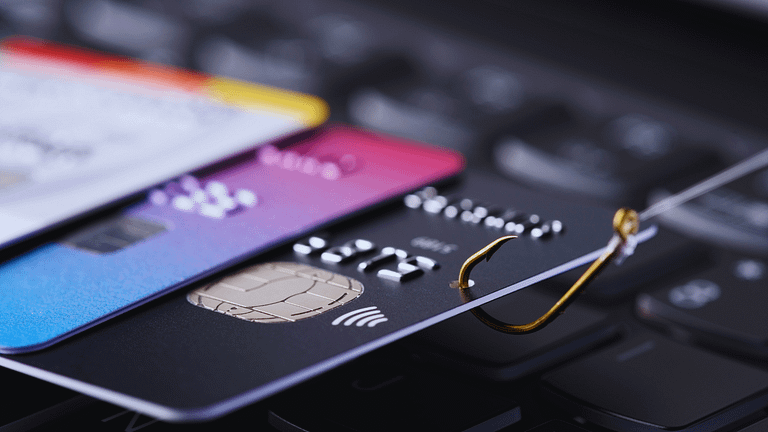Can email files be used as evidence for PCI compliance? When handling credit card information, knowing what’s PCI compliant—and what’s not—can save you from costly mistakes.
Many businesses rely on email for communication, but sending or storing sensitive payment data through email can put your business at serious risk of non-compliance.
We’ll look at how PCI standards apply to email, the risks involved, and how you can secure your communications while meeting these essential security requirements.
What is PCI Compliance, and Why Does It Matter for Email?
PCI compliance is a set of security standards designed for any organization handling credit or debit card payments, from small businesses to major retailers. To stay compliant, businesses must meet twelve specific security requirements, including:
- Using firewalls to protect cardholder data
- Setting unique passwords and configurations for security systems
- Encrypting data transmission over public networks
- Maintaining up-to-date anti-malware software
- Restricting access to sensitive data
- Assigning unique IDs to users accessing payment systems
- Monitoring user access
- Regularly testing security systems
These rules aim to protect any personal and financial information, such as credit card numbers, customer names, and addresses.
For emails, this compliance is especially challenging, as unencrypted emails are vulnerable to cyber threats. This means that sending or storing credit card information in regular emails can put you at serious compliance risk.
Can Email Files be Used as Evidence for PCI?
So, can email files be used as evidence of PCI compliance? Technically, email can be PCI-compliant, but only if it’s encrypted.
Standard email platforms don’t typically offer the level of security PCI demands, as they often store and transmit information in plain text, leaving sensitive data open to unauthorized access by employees, hackers, or other third parties.
Even if you encrypt email data, you can’t always be sure the recipient will maintain that encryption or handle the data responsibly, which adds further risk to using email for any PCI-related communication.
Why Staying PCI Compliant is Important
PCI compliance is critical for businesses that accept credit card payments for a few major reasons:
- Avoidance of Non-Compliance Fines: Violations can lead to fines of up to $100,000 per month from credit card companies.
- Reduced Fraud and Chargebacks: Following PCI standards reduce the risk of fraudulent transactions.
- Merchant Account Protection: PCI compliance is often required to maintain your merchant account, essential for payment processing.
- Customer Trust: By protecting customer information, you’re helping to maintain your brand’s reputation and ethical standing.
Failure to comply with PCI standards can lead to data breaches and other security issues, damaging both your business and customer trust.
Making Email PCI Compliant: Practical Tips for Secure Communication
If regular email isn’t enough for PCI compliance, there are still ways to keep your business running smoothly while following PCI standards. Here’s how:
- Avoid Sending Sensitive Information in Emails: Never send credit card details or other sensitive information in plain text emails.
- Use Secure Messaging Options: If you need to communicate sensitive data, consider sending secure links to PCI-compliant servers with strict encryption and access controls.
- Implement Secure File Transfer Platforms: Managed File Transfer (MFT) platforms support PCI-compliant file sharing, and data management, and meet several security standards.
- Choose Technology Providers Carefully: Work with vendors offering strong security features, like PCI-compliant file transfer protocols, multi-factor authentication, and firewalls.
- Train Your Team Regularly: Ensure your employees know and follow secure data practices, with documented training on PCI compliance.
- Use Tools with Reliable Audit Trails: Platforms that offer thorough logging and immutable audit trails help maintain a clear record of all security and data access events, supporting PCI compliance.
By implementing these secure practices and working with PCI-supportive technology providers, your business can handle sensitive customer data confidently while staying compliant.
Employee Training and Phishing Attacks
Beyond encryption, training employees on best practices for handling sensitive data is a must. Employees need to know how to protect encryption keys and recognize potential phishing attempts, a common tactic used by cybercriminals to access secure data.
By educating your team to spot and report phishing attacks, you can lower the risk of data breaches and help ensure PCI compliance across your operations.
Effective employee training is key for keeping everyone aligned with PCI standards, from handling encryption to identifying security risks. This proactive approach helps keep sensitive information safe and builds a stronger, more resilient security culture within your organization.
Can Email Files Be Used for PCI Compliance? Here’s How Premier Payments Online Can Help
If you’re searching for a payment solution that keeps you PCI-compliant and protects sensitive data, Premier Payments Online has you covered. We make payment security simple, so you can focus on running your business with peace of mind. Don’t wait for compliance issues, reach out today to safeguard your operations.











